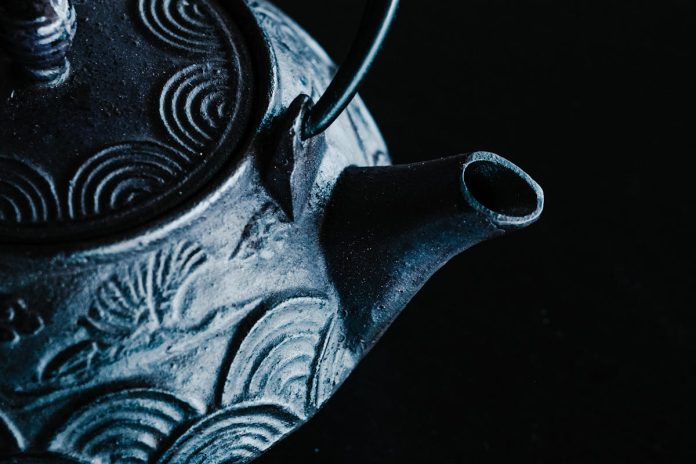‘Shattered people are best represented by bits and pieces’
— Rainer Maria Rilke
Queens, New York 1959
He hesitated for a few seconds at the top of the stairway, hung onto the iron railing, and swung himself towards the window, peeking through a crack in the broken yellowed Venetian blind. Then he rang the bell. It was eight o’clock in the morning, and he had never rung anyone’s bell on the whole block so early before. Now I can see what she looks like up close, he thought nervously. He heard muffled footsteps approaching and braced himself. The door opened and a thin-shouldered, petite middle-aged woman with permed hair in a style frozen from the nineteen-forties appeared.
“Mrs. Alpen, here’s a letter for you. It came by mistake,” piped the boy from across the street gawking at the crazy woman.
“Thank you,” the woman said curtly, forcing a smile. Then with her heavily moisturized face glistening in the morning light, she looked away, almost condescendingly, and let her eyes fall upon a trail of dried mimosa pods blowing into her walkway. It’s those people across the street, she thought with annoyance. Why can’t they just trim that tree and keep their yard clean? She shut the door and stood in the foyer adjusting her robe then opened the letter. Just another general notice from the Ladies Club. “I suppose I should collect my things for the rummage sale today, eh, Priscilla,” she said softly to the gray cat slinking between her ankles. She promised she would help the ladies as usual. But it was all so tedious. The same thing year after year. Lorna Tinkerton would just sit in the corner knitting, sullen Bertha Byrne would guzzle all the coffee, and Rosie Krips would do nothing but talk about her granddaughter. They never got anything sold to cover their costs, and now she hardly had anything left to give them. After Rosie came last year and stormed through the house, practically pawing at everything she had displayed on the mantelpiece, Mrs. Alpen vowed never to let that happen again.
She bent down, chucked Priscilla on her upturned chin, looked at her watch, and noticed that her hand was trembling again. There was just enough time to hide everything before Rosie would come by to pick up her donation. She looked around her apartment and took away all the items she thought she should hide and stashed them into the pantry cupboard: a crocheted Afghan, a cut glass vase, several silk and plastic flowers, the picture frame her niece had made for her from little green colored seashells, a set of fragile demitasse cups and saucers. The rest of the furniture she covered with white bedsheets. She looked through the blinds apprehensively. Walking in front of the apartment building across the street a Chinese woman was hunched perpendicular to the waist, her face pulled tautly in a perpetual scowl of concentrated dismay. I do so love a good cup of tea, she thought staring at the figure absently, imagining the woman plucking two leaves and a bud, filling her overstuffed satchel with choice mountain tea leaves somewhere in a remotely exotic part of the world. She put her kettle on to boil, fed the cat, plumped up her coiffure with a few padded hair rolls, then sat down to enjoy a steaming cup of her favorite Earl Grey.
It was five minutes to ten when the doorbell rang again. “Prissy, go and hide before she packs you in the box, too!” Mrs. Alpen exclaimed, shooing away the cat. Rosie burst in and almost pushed her way through the apartment. She looked startled. “Winnie, you’re not moving or something, are you?”
“No, no. I’m just cleaning. I thought I might do some painting. The walls look a bit drab and dirty. They haven’t been done since Jack died, you know.”
“But there’s nothing here. You did collect something for the rummage sale, didn’t you?” Rosie eyed her suspiciously, a bloated pufferfish about to force itself on its prey.
“Oh, yes, dearie. Of course.” And she produced a cardboard box full of old lace gloves and tatted handkerchiefs, a crushed felt hat, some patent leather belts, packets of new hairnets, an old leather bomber jacket, and assorted items of clothing from her ‘frozen’ days.
Rosie remained silent. A line appeared at the bridge of her nose. Then almost at once, it disappeared again as her eyes widened scoping out a small mahogany table near the door. “Oh, Winnie, that little black teapot is just divine! It’s just the sort of thing we could use. Almost matches with the set of toy china Mrs. Tinkerton contributed. It’s a Staffordshire, isn’t it?” And she swooped down upon it and placed it greedily in the box.
Oh dear, oh dear. Why didn’t I see it? Now it’s too late. She’ll never give it back, the old vulture. Darn it all, thought Mrs. Alpen in a helpless flurry as the blood rushed to her face. “Yes it is. Jack bought it for me during the War. But that’s alright. I guess you can have it.” No, really, she couldn’t have it. But you just didn’t argue with Rosie.
She didn’t know why she suddenly began mentioning Jack. No one spoke about him anymore since that fateful afternoon nine years ago. Jack had never quite recovered from his shell-shock serving in Belgium, and then one day, he simply disappeared mysteriously. Mrs. Alpen was beyond herself and gave up hope almost entirely. A week afterward, she went down to the basement to hang up her laundry, and as she switched on the light, there was Jack, all alone swaying softly, gray and dead. The investigator confirmed that it was suicide, that he had hung himself with his own belt from one of the rafters, although no one quite knew the real reason why Winnie couldn’t see it coming. He was always sullen, she mused. Antisocial, insisting they keep to themselves. But that was all. Since then, no one ever referred to the story at all in Mrs. Alpen’s presence, although people began to talk about her more frequently behind her back. Even the neighborhood children avoided her and called her jinxed when she wasn’t around.
She looked anxiously about her, dreading that Rosie might discover something else, and said in a hurry, “Well, I guess that’s it. We better get going or they’ll be waiting.” She grasped the glass door knob, its icy smoothness reminding her of Jack’s cold hand, and felt a shiver ripple through her fingers. She waited for Rosie to exit the living room, locked the screen door, then the two headed up the block together.
The Wincrest Reformed Church was just a few blocks up the road directly behind Wyatt Avenue. As they caught a glimpse of the imposing shingled gray spire when they turned the corner, Mrs. Alpen’s heart began to palpitate and lurch slightly at the sight. The same old building. Why don’t they fix the chipped white paint on the portico all these years? It looks so shabby. And here I am again. How many times have I gone through this, and Rosie always gets to keep the best articles for herself, year after year. She never felt like this before, and if those thoughts had perhaps entered her mind only vaguely in her remote subconscious, now they formed concrete images and words upon her weary brain, an exhibit ready for display. For a moment, she became alarmed.
Rosie plunged in through the entrance and greeted everyone inside imperiously. “Hi, we’re here!” The large paneled basement room was lined with four long rows of folding tables, each draped with a green baize tablecloth. On a small stage more the size of a crawlspace were placed stacks of Bibles and Sunday school picture books. An old walnut upright piano stood propped in a corner. Along the walls hung children’s crayon drawings and cutout figures depicting Old Testament scenes made from stiff construction paper, proud efforts of the Sunday school classes. Lorna Tinkerton was neatly arranging a pile of clothes on the far end of one of the tables; Bertha Byrne was already manning her station at the coffee machine setting out porcelain cups and saucers.
“Well, it’s almost time to open,” chimed Rosie. “Are we ready, ladies?”She took out the contents of Mrs. Alpen’s box and grimaced as she pulled out each article. The little black teapot she placed on the table near her station. She was in charge of selling the paper bags at fifty cents a piece, a quarter for the smaller ones. Mrs. Tinkerton took her place near the stage and began to crochet. Bertha was still pouring out the coffee for the guests while Mrs. Alpen began to walk between the tables setting things in order.
“Rosie,” asked Bertha, “how is your granddaughter Susie getting on?”
There it goes. I knew she would ask, thought Mrs. Alpen in frustration.
“She’s wonderful. Just wonderful! Such a dear, and she is so smart, too. She just sent me a beautiful little watercolor in the mail. They had it on display in her grammar school. You know they moved out west a few months ago. Nothing but A’s on her report card. Straight A’s. There’s no one like her. And she got a top role in her school ballet show. She’s only nine and she got so many curtain calls. That girl is going to be something, I’m telling you. There’s no one like her.”
“Oh, she is special, I always thought,” shouted Mrs. Tinkerton from the crawlspace. “Don’t you think so, Winnie?”
Yes, how special, mimicked Mrs. Alpen to herself. Every year, all I hear is the same thing about her boring granddaughter. She wanted to say something about her own niece Veronica, but didn’t answer and continued tidying a pile of clothing.
A group of strangers walked up to Rosie, paid their half-dollar entrance fee and shook open their paper bags. Rosie glued her eyes on one of the women as she approached the table containing the glassware and china articles. As the woman lifted the toy china set into her paper bag, Rosie squinted and bit her lip. I knew I should have hidden that set somewhere, she thought reproachfully. Susie would have loved it. Then she stepped over to Bertha for a cup of coffee.
The hours rolled by, and at about three o’clock, a small sherry-eyed boy with dark brown crew cut hair opened the door and slipped in shyly. His eyes darted about uncertainly, and it was clear he felt somewhat uncomfortable being alone with all the dowdy, middle-aged women, especially the strange lady across the street, but his mother had sent him to see what was going on, and he was conspicuously alone. He paid his quarter for the entrance fee, opened his small paper bag and made his rounds about the tables.
“Look at that boy. He’s stuffed enough in there to fill at least three bags. I wonder how parents can teach their kids like that,” exclaimed Bertha
“His mother probably thought it would make a cute impression for a little boy to get away with that. I wouldn’t let my son do that,” answered Lorna indignantly.
“My little Susie would never embarrass her family like that either,” retorted Rosie.
Mrs. Alpen was visibly disgusted with the conversation. She kept her back turned remaining mute, and had now walked over to the pile of leather goods.
Rosie had returned to her station near the china and glasswares and had pulled out a flannel cloth intending to polish the teapot. She struck a petrified pose, her eyes expanding in alarm. It’s gone, she thought. Someone must have taken it when I was away. She looked about flustered. Maybe Winnie took it back, that sneak. Then her eyes fell on the boy as he was leaving. His paper bag was now tearing at the corners, bulging full of objects. She stopped him intimidatingly.
“Let me see that bag,” she commanded.
“Why? I paid for it,” he answered, startled and fearful.
“Let me see it, I said. You’re not a Sunday school member, are you?”
“What do you mean, Rosie? You can’t ask him that,” said Bertha.
“Leave me alone. It’s none of your business.” Then turning, she said forcefully, “You heard me, boy.”
“That’s Johnny Russo,” said Mrs. Tinkerton. “Lives across the street from Winnie. My son is in the same class with him.”
Johnny Russo’s little heart began to beat wildly like a wren trapped in panic. His mouth was half-opened. He tried to utter something, forcing a faint ingratiating smile to conciliate his elders. But when they remained rigid and square-jawed, the strained and silent atmosphere was too much for him. Like an ambushed bird, he tried to escape. He fled towards the exit, but the frayed paper bag crushed under the despairing pressure of his grip. The crack in the corner opened and disgorged the teapot from its swollen contents, shattering it into hundreds of shards onto the tile floor. Johnny didn’t look back, and dashed out the door with a whoop, clutching his coveted leather bomber jacket.
Mrs. Alpen rushed up and grabbed the remains of the teapot lid, cradling it in her hands. She stood speechless, and felt a new rush of blood to her face. Her veins swelled with quivering dread, and for a moment she felt immersed in a flood-like stupor. When the words spilled from her lips uncontrollably, she watched herself as from a distance, appalled and frozen.
“It’s my Staffordshire. Give me back my teapot! What right did you have to take it, Rosie? It’s mine. You shouldn’t have taken it. It was a present from my Jack. You always want everything for yourself.”
“I’ve been chairwoman of the Ladies Club for over twenty years here, and no one has ever spoken to me like that!”
“I don’t care. Everyone knows what you’re like. You’re so bossy. And I’m sick to death of your granddaughter, too. Everyone knows you told Jack he was a drain on me.” She saw that Rosie‘s eyes had flashed in astonishment. “Yes, you know you said that. I’ll never forgive you, Rosie!” Her voice gradually became distorted until faint wailing sounds began to thread from her lips.
“Listen to her, she’s sick,” said Rosie sarcastically, her eyes flaring widely, coaxing a smirk exposing her pearly teeth.
The tide drew itself in to Mrs. Alpen’s panting thorax. She hesitated for composure. “I am through with you. All of you. I am never coming back here again. Count me out from now on. I’ve had it. I want nothing more to do with you. Never. It’s all over.”
Nothing more was said. Mrs. Byrne, Mrs. Tinkerton, smiled patronizingly to fill in the silence. Only Rosie Krips’s grin looked firm, victorious, well-fed. Mrs. Alpen gathered her things, downturned eyes looking at the polished wooden floor, conscious of the red patches flaring up on her cheeks, and slammed the door behind her. Her head was reeling. Once outside, she craned her neck, straining to push her shoulders back in place in a semblance of dignified retreat.
As she walked back down the block and crossed the street she looked glassily at the bent Chinese woman returning to her apartment building pushing her loaded shopping cart ahead of her. Then she stooped briefly on the brick stairway to pick up the dried mimosa pods. It’s that Russo family across the street, she thought to herself in annoyance. She spied her cat Priscilla peeking through the crack in the window blind, smiled, grasped the glass door knob and shut the door behind her.
Word spread swiftly throughout the neighborhood and hardly anyone came to ring crazy Mrs. Alpen’s doorbell for a long time afterwards.
About the Author
Author of the debut novel Twelfth House and Shaded Pergola, a collection of short poetry with original illustrations, E. C. Traganas has published in 100+ literary magazines. A concert pianist and composer by profession, she has held over forty nationally-curated exhibitions of her artwork, is founder/director of the NYC-based literary forum Woodside Writers, and Editor of The Woodside Review. www.elenitraganas.com












